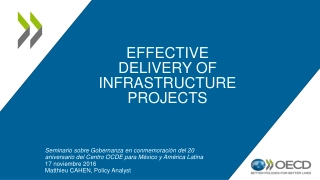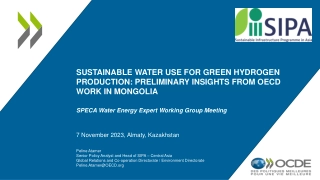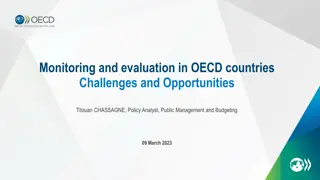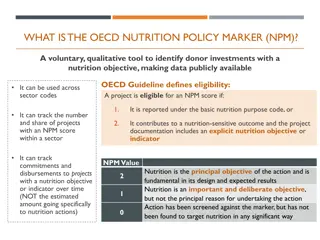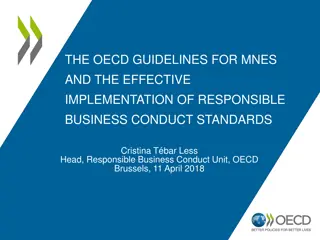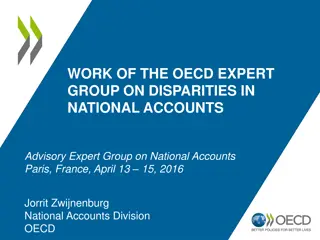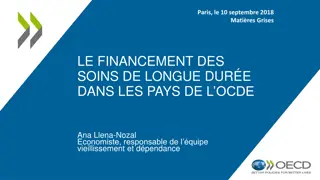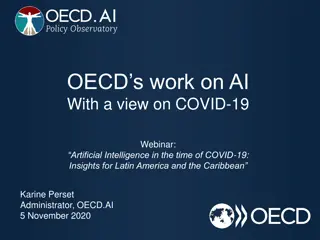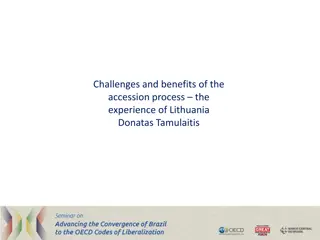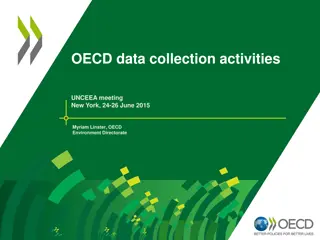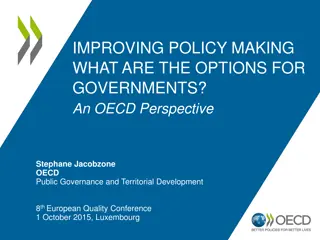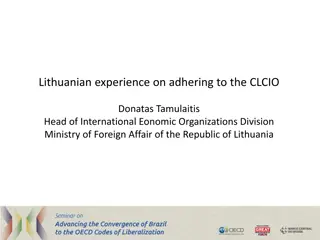
Insights from IARIW-OECD Conference on National Accounts Future
Discover key outcomes from the IARIW-OECD conference on the future of national accounts, including discussions on incorporating well-being, global trends, and the importance of quality national accounts for economic decision-making.
Download Presentation

Please find below an Image/Link to download the presentation.
The content on the website is provided AS IS for your information and personal use only. It may not be sold, licensed, or shared on other websites without obtaining consent from the author. If you encounter any issues during the download, it is possible that the publisher has removed the file from their server.
You are allowed to download the files provided on this website for personal or commercial use, subject to the condition that they are used lawfully. All files are the property of their respective owners.
The content on the website is provided AS IS for your information and personal use only. It may not be sold, licensed, or shared on other websites without obtaining consent from the author.
E N D
Presentation Transcript
OUTCOME OF THE IARIW-OECD CONFERENCE ON THE FUTURE OF NATIONAL ACCOUNTS Advisory Expert Group on National Accounts Paris, France, April 13 15, 2016 Peter van de Ven Head of National Accounts OECD
General overview Conference held in Paris on April 16 17, 2016 More than 100 participants Keynote addresses by Andr Vanoli, Anne Harrison, Peter van de Ven and Diane Coyle 33 papers on amongst others the following topics: Incorporating well-being in national accounts National accounts in the wider statistical context Money and finance in the SNA National Accounts in a globalising world Human capital, growth and productivity in the SNA The future of national accounts More details: http://iariw.org/c2015oecd.php 2
Main conclusions Social and environmental issues to be presented in a more inclusive framework, of which the System of National Economic Accounts (the central framework ) forms one part, and alternative or additional frameworks (satellite accounts) given equal status More attention to household-related indicators, including the development and dissemination of distributional information on income, consumption, saving and wealth Full integration of extensions to the central framework (e.g. major changes in the production boundary and/or asset boundary) considered neither practical nor desirable 3
Main conclusions, cont. Because of increasing and changing user demands, need for a flexible system of statistics, with an improved linkage between macro-data and micro data sources => need to give special consideration to links of SNA-concepts with business accounting Need for a stable system, thus avoiding frequent revisions. However, current challenges need to be addressed as well: Globalisation, recording and measurement of multinationals Role of knowledge and intangible assets Financial sevices Before changing the standards, need for extensive practical experience (at first in satellite accounts?) 4
Main conclusions, cont. Every country can gain from having good quality national accounts (also if full implementation is not possible) => need for compilation guidance focussing on the basics Need for a brief synopsis of the SNA (< 50 pages) for users, describing the main indicators, their strengths and weaknesses, relation with economic theory and economic policy targets Communicate, communicate, communicate 5

